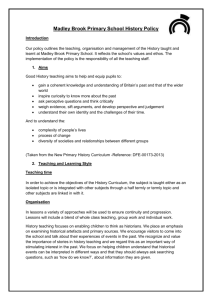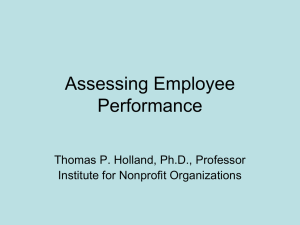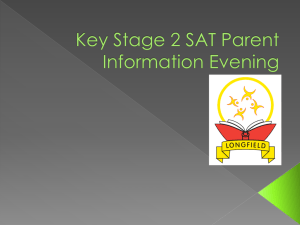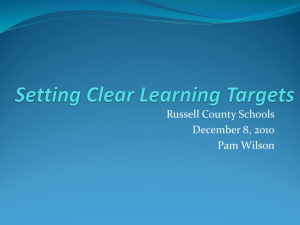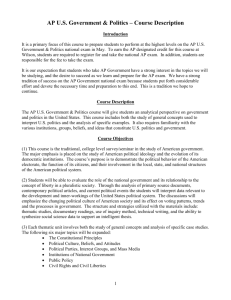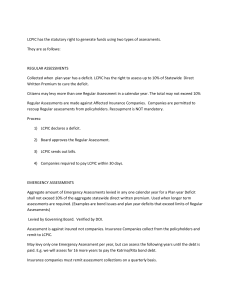Policy for assessment, recording and reporting Updated March 2015
advertisement
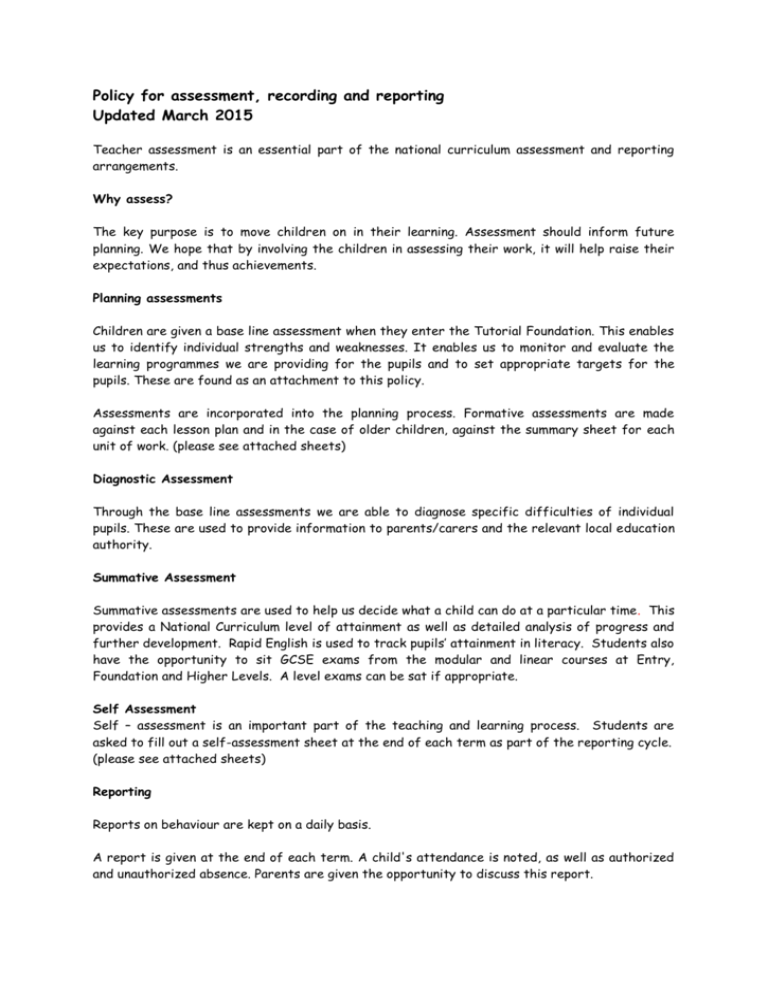
Policy for assessment, recording and reporting Updated March 2015 Teacher assessment is an essential part of the national curriculum assessment and reporting arrangements. Why assess? The key purpose is to move children on in their learning. Assessment should inform future planning. We hope that by involving the children in assessing their work, it will help raise their expectations, and thus achievements. Planning assessments Children are given a base line assessment when they enter the Tutorial Foundation. This enables us to identify individual strengths and weaknesses. It enables us to monitor and evaluate the learning programmes we are providing for the pupils and to set appropriate targets for the pupils. These are found as an attachment to this policy. Assessments are incorporated into the planning process. Formative assessments are made against each lesson plan and in the case of older children, against the summary sheet for each unit of work. (please see attached sheets) Diagnostic Assessment Through the base line assessments we are able to diagnose specific difficulties of individual pupils. These are used to provide information to parents/carers and the relevant local education authority. Summative Assessment Summative assessments are used to help us decide what a child can do at a particular time. This provides a National Curriculum level of attainment as well as detailed analysis of progress and further development. Rapid English is used to track pupils’ attainment in literacy. Students also have the opportunity to sit GCSE exams from the modular and linear courses at Entry, Foundation and Higher Levels. A level exams can be sat if appropriate. Self Assessment Self – assessment is an important part of the teaching and learning process. Students are asked to fill out a self-assessment sheet at the end of each term as part of the reporting cycle. (please see attached sheets) Reporting Reports on behaviour are kept on a daily basis. A report is given at the end of each term. A child's attendance is noted, as well as authorized and unauthorized absence. Parents are given the opportunity to discuss this report. The reports are summative. They provide information on children's progression and achievements to date on criteria set out in the baseline assessments. Interim reports may also be given to outside agencies and to parents if this is deemed necessary. We have regular personal contact with the parents. Methods of Assessment Formal methods Summative assessments usually involve formal methods of assessments where set tests, times, conditions and marking schemes are prescribed and followed. Informal methods Formative/continuous assessments are more informal methods of assessments. Examples of these are: Marking/evaluating recorded written work done by pupils Questioning Observations Short informal tests Subject based tests Recording Assessments and Keeping Evidence Baseline Assessments These are taken on entry to the Tutorial Foundation, and enable teachers to plan for pupils' needs. National Curriculum Teacher Assessment Teachers assess pupils against National Curriculum criteria levels. Progress on these levels is kept on termly tracking sheets. Individual Pupil Portfolios Samples of work are kept in portfolios. Our teachers keep copies of: English work Maths work Word level check lists Reading records for younger children Behaviour and attendance records AQA units of work GCSE Course Work Reports to Parents Teachers complete a written report on each pupil at the end of each term, giving details of behaviour and attendance, as well as academic performance. Parents are sent a weekly behaviour report which outlines their attendance, points achieved in each lesson and reasons for any warnings issued. This ensures we involve parents, students and the school in managing students’ behaviours and commitment to study. Transfer of records When a pupil moves to another establishment the following records are sent: Individual portfolios National curriculum assessments Individual profile folder containing any relevant personal, medical and educational details and correspondence Any public examination results Any SEN forms and individual education plans devised for the child Use and analysis of assessment results To evaluate the effectiveness of our teaching methods, planning and resources. To identify individual strengths and weaknesses and monitor their progress.
